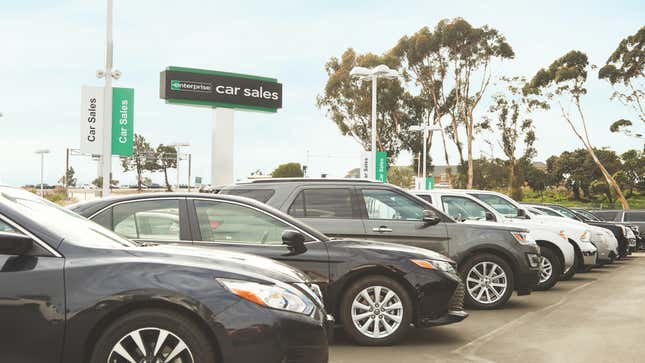
The impact of the coronavirus on the car market is turning into a worst-case scenario for automakers, lenders, dealers, and rental companies. Naturally, consumers can expect prices to fall in the pre-owned market, but the full impact of COVID-19 may not materialize for several months.
According to a report by Yahoo Finance, the big issue right now is that cars are beginning to come back from leases but they are not being sold. Wholesale auctions where dealers get a large chunk of their pre-owned inventory are essentially frozen. Rental car companies, which make money on both the rental and sales, have massive inventories sitting dormant. Industry experts predict that even once things return to normal in terms of loosening social distancing, there will be a cascading effect on the pre-owned car market.
From the story -
“Six months from now, there will be huge, if not unprecedented, levels of wholesale supply in the market,” Dale Pollak, an executive vice president of Cox Automotive, which owns North America’s largest auto-auction company, wrote in an open letter to auto dealers last week. “Cars are coming in, but they aren’t selling. Today’s huge supply of wholesale inventory suggests supplies will be even larger in the months ahead.”
Even though the car market has taken a dive, some buyers are finding deals on both new and pre-owned cars aren’t quite as cheap as they expected. It also seems that we are still in the early stages, so some dealers aren’t that desperate for sales.
As inventory builds up with fewer buyers on the market, prices will go down. Manheim, which is one of the largest auto-auctions has already seen a ten percent drop in values in recent weeks.
While buyers can probably expect cheaper used cars by the time the winter holidays roll around, there are a few other factors to consider. First of all, when used car prices fall so to the resale value on trades, so buyers may find themselves getting less than they expected or even in an under-water situation where their loan balance is greater than the trade-in value.
This residual drop also impacts leasing going forward. When the automakers’ finance arms takes a hit they will make adjustments to the projected residuals of new cars that are being leased. When projected residuals go down, lease payments go up.
Lastly, with so many people taking a major economic hit with job losses, we may see a lot of folks priced out of the new car market despite the cheap financing and heavy rebates and shift towards affordable used cars. While this projected consumer shift is unlikely to re-balance used prices back to pre-coronavirus levels, it may create more demand for pre-owned vehicles in popular segments.
While the used car prices are predicted to drop, buyers should still keep in mind that overall value is still the key objective when buying a pre-owned car. Remember: the best discount of the asking price and most dealers will have already taken the market conditions into account when advertising their cars online.